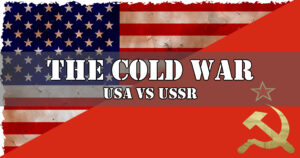What were the main ideological and geopolitical factors that contributed to the onset of the Cold War after World War II?
Indian culture was greatly influenced by colonialism especially by the British colonial rule and this had its negative and positive effects. Despite being exploitative, colonialism led to major transformations in different spheres of Indian society. Positive Impacts • Introduction of Western EducatiRead more
Indian culture was greatly influenced by colonialism especially by the British colonial rule and this had its negative and positive effects. Despite being exploitative, colonialism led to major transformations in different spheres of Indian society.
Positive Impacts
• Introduction of Western Education: The British made establishments of schools and universities so they introduced modern education. Some of the early institutions include the University of Calcutta established in the year 1857 and the Indian Institutes of Technology (IITs).
• Social Reforms:Colonial rule, led to a situation where there were various social reform movements across the globe particularly in England.Posters and pamphlets which discouraged practices such as Sati and child marriage were made by preformationists like Raja Ram Mohan Roy leading to the formation of early laws that banned matters like Sati in 1829.
• Legal and Administrative Reforms: Codification of laws and bringing in the modern system of administration facilitated the process of unification and modernization of Indian legal and bureaucratic systems.
Negative Impacts
• Cultural Degradation:Colonial policies often undermined traditional Indian culture. The imposition of English as the medium of instruction. This act made the English language to be more dominant and virtually replaced local languages and literature.
• Economic Exploitation: The economic policies of Britain cliqued the developmental process of the traditional industries of India particularly textile etc. and due to which the rate of poverty and famine also increased. The idea discussed by Dadabhai Naoroji concerning the drain of wealth described the economic colonization by foreign rulers.
• Social Disruption: Division of people into groups(Divide and rule policy) was one of the main aspects of British ruling policies that resulted in long-term division of the society. One of the policies that divided people along religious line is the partition of Bengal in 1905.
Colonialism had different impacts on Indian culture which were either beneficial or detrimental. On one hand, it introduced the system of current education and social change; on the other, it led to cultural declination and economic exploitation. Primarily, colonization disrupted Indian society and its consequences are still evident in different forms in present day society.

The Cold War was a real mess, and it didn't just happen overnight. After World War II, you had these two superpowers - the US and the Soviet Union - with totally different ideas about how the world should work. On one side, you've got the Americans pushing capitalism and democracy. They were all aboRead more
The Cold War was a real mess, and it didn’t just happen overnight. After World War II, you had these two superpowers – the US and the Soviet Union – with totally different ideas about how the world should work.
On one side, you’ve got the Americans pushing capitalism and democracy. They were all about free markets and individual rights. Then you’ve got the Soviets with their communist ideology, centralized economy, and one-party system. These two just couldn’t see eye to eye.
Geopolitically, it was a power grab. Both sides wanted to be top dog in the new world order. The US was worried about communism spreading – that whole “domino theory” thing. Meanwhile, the Soviets were paranoid about being surrounded by capitalist nations.
Europe became this big chessboard. The Iron Curtain split it in two, with both sides trying to win influence. And it wasn’t just Europe – this struggle spread to Asia, Africa, and Latin America too.
Then there’s the nuclear factor. Both sides were building up these insane arsenals, leading to this constant fear of mutually assured destruction.
It’s easy to point fingers, but really, both sides played a part. Their ideologies were just too different, and neither was willing to back down. It was a perfect storm of mistrust, fear, and power politics that kept the world on edge for decades.
See less